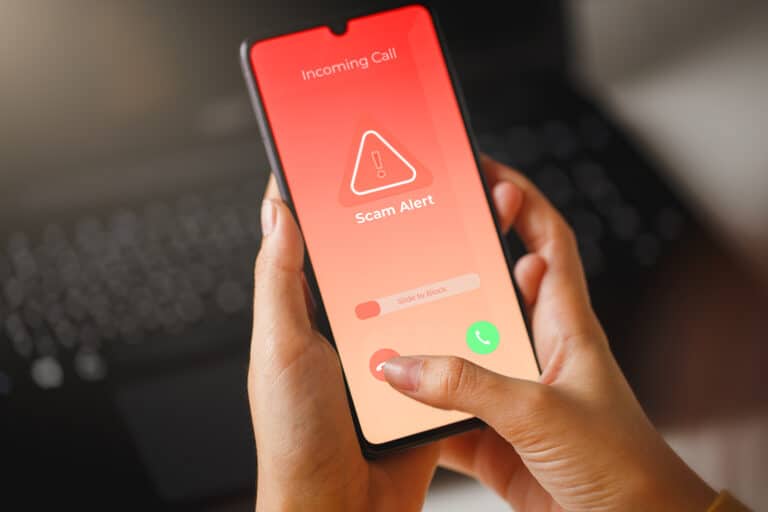Have you ever received a phone call that made your skin crawl? I’m sure everyone who owns a phone can share some hair-raising stories of what they’ve heard on the other side of the line. Phone scams are on the rise, and we must be vigilant to protect ourselves and our loved ones from these aggressive fraudsters. Some months ago, I received a scam phone call. It was an automated recording stating there was a warrant out for my arrest, and if I didn’t call the number back to verify my personal information, I would have my drivers license revoked, along with a visit from the police. Even though my mind was telling me, “This is totally a scam,” I couldn’t prevent my body from having a stress response. My heart beat increased, a knot formed in my throat and my stomach did flip flops. My reaction sounds silly, but this is exactly what these scammers are counting on. They want to create a panic, a sense of urgency and fear to manipulate their victims. It is common for people to think, “I’ll never fall for that,” but a message received from a fraudster on a bad day, or on a day when stress is running high can inhibit our ability to think clearly in the moment.
Unfortunately, phone scams are just the tip of the iceberg when it comes to fraudulent activity, but if we follow a few simple rules, we can avoid many, if not all scams. Let’s look at the most common phone scams out there today and then examine ways to keep ourselves and our loved ones safe.
Grandparent or Emergency Phone Scam:
According to the Canadian Anti-Fraud Centre (CAFC) over $ 9.2 million dollars in losses were reported by seniors who fell victim to phone scams in 2022. Near of top of the most common is the grandparent scam, where fraudsters will impersonate a grandchild or other family member in distress, claiming they need immediate financial help due to an emergency. One example is a grandchild calling from the police station stating they have been falsely arrested and in need of bail money. Of course, the loving grandparent doesn’t want to leave their grandchild in prison, so they gladly transfer/wire money. Victims of the scam are also led to believe that they can’t tell anyone else of the current situation due to a court-enforced gag order, therefore isolating the senior to only trust the scammer. This scam seeks to create a highly charged emotional response in the listener and builds a sense of dependency. At the end of the phone call, you may begin to feel that you are the only one who can help.
In this case, where you begin to feel overwhelmed it is ok to take a step back and think. One of the things to look out for in this scam is the idea that will always be focused on by the scammer: money will fix everything and will fix it quickly. Taking a step back and thinking about this idea really exposes the lie imbedded in it. Remember, this particular scam works on impulsive and/or quick decision making.
*Stay tuned for Part Two: Tips to protect yourself and what to do if you are a victim of fraud*
- Getting Everything Done with Gentle Morning Routines - January 28, 2025
- Four Ways To Show Empathy Toward Someone With A Chronic Illness - December 21, 2024
- Encouraging Independence Through Alzheimer’s Home Care - December 6, 2024








